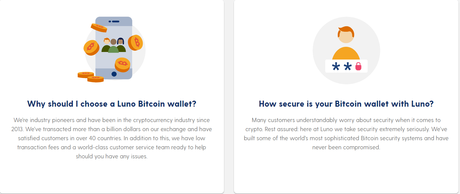Blockchain technology is renowned for its ability to enable peer-to-peer payments with cryptocurrency. And with the emergence of reliable services like the Luno Bitcoin wallet, payments have become borderless, fast and cheaper than before. However, this is just the tip of the iceberg though. It has also seeped its way into other areas, solving problems as it meanders its way around business, fintech and even the food industry.
It predominantly achieves its cross-industry success through the utilization of smart contracts. These allow users to track the progress or journey of something and pass on information. One example would be car details being recorded on the blockchain – such as mileage and breakdowns – to prevent the car from being sold on after being tampered with or after the buyer was lied to.
The scope of blockchain success seems to be limited by human imagination alone. The more industries will be open to considering the blockchain the more solutions that are unearthed. So, what next? How about music? This unlikely combination can be revolutionary in the industry…

Helping Royalties Get to the Right Place
A single is worked on by a handful of people from the singer and drummer to the producers. When a song is played or bought, all of these people are usually entitled to a share or cut of the money via royalties. This is often a non-dramatic affair because their information is stored in the metadata of the title. However, this data can be altered or left out, meaning some people don’t receive what they are due.
Blockchain technology can counter this problem by helping a song and its royalty rights to remain transparent, intact and unable to be tampered with. Thus the rightful owners of the song will always be identified and they will always receive their fair share. In most cases when artists or technicians are not getting their cut, it is due to human error rather than purposeful avoidance. It would also save a lot of musicians on lawyer fees, as Katy Perry will well know.
Overcoming voting Fraud
Music-related tv shows such as American Idol have been often accused of cheating the public by rigging the voting system, keeping in the contestants that help the show receive the highest number of viewers rather than the ones that were actually voted to stay in the singing competition.
Blockchain can come to the rescue in this regard as well. The blockchain will provide one way of transparently showing how many people voted for who, but it would do this in two crucial ways. One is that voter anonymity will be maintained and the second is that votes could never be changed. This is yet to be realized but a promising opportunity.
In a Nutshell
In summary, the blockchain is making small steps in the music industry compared to other areas. Nevertheless, these initial changes could be all that is needed for the music industry to profit on blockchain’s success in other ways, such as cutting out music providers to make music cheaper for the general public.
Other industries peering over at these pending developments may also want to look at themselves and ask: How can blockchain work for us?
